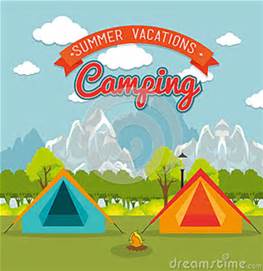
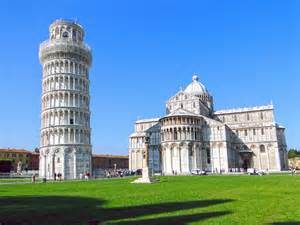


This morning we begin a new series of sermons on the one-liners we may read on people’s Twitter messages, or TWEETs. Twitter is one of the cyberspace ways that people stay connected. The question before us as we proceed weekly through this series is how do we stay connected to God, even with our more casual inclinations during the summer months
Today’s one line TWEET is, “Did we forget anything.”
Jana thought, thinks I am well suited to address this topic. We won’t repeat that conversation here. Envision with me a family one hour into a ten-hour drive to their vacation destination. One parent turns to the other and asks: Did we forget anything? My own answer to this question is realistic: I assume that I did… Experience has taught me that I will have forgotten something. So far, I am glad to say, that something has not been a some-one.
 You probably will not be surprised when I say that Jana is the queen of list makers, and advanced planners. She often brings on our trips what she thinks I might forget. So, when I need that item, and she hands it to me, I lower the volume of my complaining about the quantity and weight of her luggage. It’s an artful tactic that works for her… and – for us.
You probably will not be surprised when I say that Jana is the queen of list makers, and advanced planners. She often brings on our trips what she thinks I might forget. So, when I need that item, and she hands it to me, I lower the volume of my complaining about the quantity and weight of her luggage. It’s an artful tactic that works for her… and – for us.
In Joseph and Mary’s day, planning ahead for a trip was not merely an operational preference made by disciplined people, like Jana: It was a necessity. Nothing could be wasted, and forgetting to take something needed could be fatal. Ancient journeys required careful planning. It was best to travel in groups, because rogues and brigands haunted some regions, despite the Pax Romana. There likely would have been discussions about who would bring what, and in what order they would walk or ride, where they would stop for the night, and who would take the first and second and third watches.
Let’s start TWEETING our responses to this week’s question: Did we forget anything? Not as likely if we made a list and started preparing early.
We forget more than things, and not only on vacations. I refer first to those many, many times each DAY when perhaps I should speak for myself – when I give credence to the phrase, “absent-minded professor.” You may be able to relate to some of the following examples, in question form, even beyond the stereotype of walking into a room and forgetting why you entered it. Do you look at your cell phone and wonder why you took it from your pocket or purse? Do you sit and stare at the icons on the phone hoping to remember the one you should press? Do you drive down the highway and, at some surprising moment realize you do not remember driving from point a to point b? Do you ever get a phone call from the bank asking you to return the canister to the drive-thru. (That may be just me. It was an embarrassing moment.)
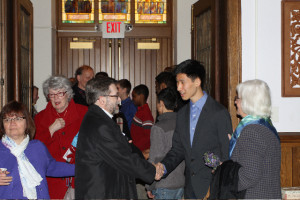 Ours is a forgetful generation, and it is not just because some of us spend too much time with our minds elsewhere. We are drawn toward lifestyles that are mentally fragmenting. Television and radio, cellphones, computers and so much more are over-stimulating; and so, overwhelmed, we disassociate from the present, and we forget. I suggest that (I am working on this one now) in order to reduce mental fragmentation and enhance our focus on the here and now we may benefit from pausing, just pausing: perhaps before beginning our day in earnest, or between tasks, or in the evening, or all of the above. We read in the gospels that Jesus often went into the wilderness to be alone. He knew that rhythm is essential to nature. It is written in the fabric of this world. That we will benefit from taking a few minutes regularly to reflect on where we were, where we are, and where we are heading probably is in our DNA.
Ours is a forgetful generation, and it is not just because some of us spend too much time with our minds elsewhere. We are drawn toward lifestyles that are mentally fragmenting. Television and radio, cellphones, computers and so much more are over-stimulating; and so, overwhelmed, we disassociate from the present, and we forget. I suggest that (I am working on this one now) in order to reduce mental fragmentation and enhance our focus on the here and now we may benefit from pausing, just pausing: perhaps before beginning our day in earnest, or between tasks, or in the evening, or all of the above. We read in the gospels that Jesus often went into the wilderness to be alone. He knew that rhythm is essential to nature. It is written in the fabric of this world. That we will benefit from taking a few minutes regularly to reflect on where we were, where we are, and where we are heading probably is in our DNA.
SECOND TWEET: Did we forget anything? Not as likely if we paused before we left. (SUBTWEET: Even less likely if we have included pausing in the rhythm of our days.)
Still beyond things and vacations alone: Forgetting has consequences both for individuals and communities. There are three journeys in our lesson from Luke’s Gospel, and they are interesting as they were motivated by community memory. I begin most days with a reading from the Christian Testament, the New Testament, if you prefer. I read it in Greek, which is the language of composition for most of its documents. I am not special in this: Many professors of theology are able to read an ancient language. When reading in Greek, I often discover something new to me, a detail I did not see before, one that both stimulates and focuses my thinking. Sometimes I relearn something I once knew. Have you noticed that life’s lessons are easily forgotten and must be relearned many times? Like individuals, a community with amnesia repeats the mistakes of the past. Just two generations from the holocaust, anti-semitism is on the rise again in Europe, along with anti-“otherism.” (Europe is a not-so-distant mirror.) Fascism is an expression of anarchy disguised as nationalist loyalty. Fear is the great enemy – the demonic force behind hatred and scapegoating.
ANOTHER TWEET: Did we forget anything? Not as likely if we are attentive to our lessons.
Forgetting is not always a problem. We need to be able to forget in order to make room for what our conscious minds can hold. On the other hand, some forgetting damages our ability to enjoy the present. Memories that are repressed sometimes contribute to our driven-ness, our sense of urgency and fragmentation, our diving in and swimming with very little if any sense of direction. Repetition compulsions (neurotic habits) are another subject for another day – I’ll not share any of mine today…
I WILL TWEET this much: Not as likely if we look for what we may have overlooked.
The first journey is about Jesus’ birth – a familiar story. Jesus’ father and mother traveled to Bethlehem. Upon their arrival, there was no place to stay, and Mary was giving birth. We may relate to their fear and anxiety. Some journeys include dramatic events: illness, hospitalization… we might substitute in Mary and Joseph’s case updated language. Instead of no room in the upper room, where guests were lodged, we might say there was no room at the hospital, no room in the maternity ward, or there were no medical facilities nearby.
TWEET: Did we forget anything? Not likely if we anticipate possible surprises along the way. (Of course, we cannot anticipate them all.) Still beyond things and vacations alone.
The second journey in our story was motivated by the covenant God is said to have made with Abraham, and detailed through Moses at the giving of the Law. The newborn male child would be circumcised as a sign of belonging to the people of the covenant: God’s chosen, God’s elect; and if he was the first boy, he also went through the rite of cleansing at Jerusalem; hence the journey [It is interesting that rites so essential to Jewish identity were set aside by the Apostle Paul. Christians typically believe that in this he understood the spirit of the law. There has been much argument over the centuries about the status of the law, even to this day.]
TWEET: Not a response to the question but an insertion – Remember why you went on the journey. (Don’t let arguing over the route spoil the trip.)
The third journey is the trip made by an apparently large contingent from Nazareth to Jerusalem for an annual festival. The journey was an annual event; perhaps this year Jesus’ coming of age also was celebrated. As we have heard it read, at the end of the festival the contingent began their return journey to Nazareth. We read that Jesus’ parents, Joseph and Mary, discovered after a few days’ on the road that Jesus was not with other family members, as they had assumed. Can you imagine their panic? Perhaps theirs was a unique panic? Now, according to Luke, the parents had been through a lot of convincing experiences, enough to say to themselves, perhaps, something like this: “Dear God we’ve lost the Messiah!” What a Tweet that would be… going viral wouldn’t even begin to capture the power of that one.
We read that Jesus’ parents, Joseph and Mary, discovered after a few days’ on the road that Jesus was not with other family members, as they had assumed. Can you imagine their panic? Perhaps theirs was a unique panic? Now, according to Luke, the parents had been through a lot of convincing experiences, enough to say to themselves, perhaps, something like this: “Dear God we’ve lost the Messiah!” What a Tweet that would be… going viral wouldn’t even begin to capture the power of that one.
I think, though, that they really were just worried about the boy they loved. I remember my parents, with five children, counting heads in order to avoid a personalized “yes” answer to today’s question: Did we forget any… one? Mary and Joseph returned quickly to Jerusalem and looked frantically for Jesus, only to find him astonishing the elders by his wisdom, which is evidence that this was his “bar-mitzvah” year.
TWEET: Did we forget anything? Not likely if we keep our minds on what matters most.
The story of this journey is a little vexing. Jesus responded to his parents: “You should have known I’d be about my Father’s business.” Never mind he had worried his parents half-to-death.
Upon hearing, “Oh, I stayed behind to do God’s work,” I might have responded, “Maybe God will do your extra chores when we get home to Nazareth. It may have been that Jesus felt a tension at this, a tension we too encounter: to attend to the need of the moment, perhaps a mundane need in which people are depending on us, or to do pursue our calling, Do I leave my Sabbath moment in order to respond to the urgent, or do I stay? A word of caution: I have heard excuses that put a veneer of prayer on a matter that required action. Pausing, even if for prayer does not necessarily make holy things or holy people. On the other hand, not pausing to reflect and think and pray potentially leads to undiscerning commitments, and unholy alliances.
TWEET: Did we forget anything? Not likely if pausing leads to more meaningful and timely action.
 I have mixed metaphors with some license today. It’s been a fun frolic for me. Suffice it to say that we are on a journey, individually and all together. Love for God, love of neighbor, and a healthy love of self. On these commandments lie all the law and the prophets, that is also, all the memory of community identity and meaning. The fruits of the spirit are faith, hope, kindness, welcoming the stranger… against these there is no law.
I have mixed metaphors with some license today. It’s been a fun frolic for me. Suffice it to say that we are on a journey, individually and all together. Love for God, love of neighbor, and a healthy love of self. On these commandments lie all the law and the prophets, that is also, all the memory of community identity and meaning. The fruits of the spirit are faith, hope, kindness, welcoming the stranger… against these there is no law.
FINAL TWEET: Above all – remember love – Love should be on our list! Then it will not be likely that anything really necessary will be forgotten.
Did you forget anything? Are we forgetting anything? This summer, let’s take the time for a second look at our packing list.


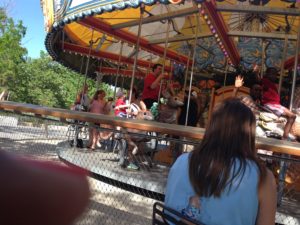 me I rode one. I had taken, David, my grandson to the park and he was his energetic self, running all over the playground going from this fun to that fun to the next… After some time I looked over at the empty rocking horses; they were the most appealing toy to a tired grown-up who needed a break. I held David’s hand and excitedly pointed, “Look,” I said, “a rocking horse, let’s go for a ride.” I sat him on one horse, and straddled the one next to him and we began riding, well…rocking actually. Ten seconds later he was scrambling to get down. “No,” I encouraged him, “let’s ride some more.” But he could not dismount that horse fast enough. This was NOT his idea of play. Why do you think? It was going nowhere! It was all show and no go!
me I rode one. I had taken, David, my grandson to the park and he was his energetic self, running all over the playground going from this fun to that fun to the next… After some time I looked over at the empty rocking horses; they were the most appealing toy to a tired grown-up who needed a break. I held David’s hand and excitedly pointed, “Look,” I said, “a rocking horse, let’s go for a ride.” I sat him on one horse, and straddled the one next to him and we began riding, well…rocking actually. Ten seconds later he was scrambling to get down. “No,” I encouraged him, “let’s ride some more.” But he could not dismount that horse fast enough. This was NOT his idea of play. Why do you think? It was going nowhere! It was all show and no go!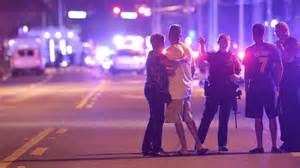 weeks ago was tragically disrupted by a horrific mass shooting in Orlando last Sunday morning. It wasn’t the kind of event that I could keep calm and go on preparing my tidy little rocking horse sermon. No, the rocking horse took on more significant proportions as I read the Scripture, and read the news, and re-read the Scripture, and heard more news. The increasingly dissonant and mournful soundtrack against which I read
weeks ago was tragically disrupted by a horrific mass shooting in Orlando last Sunday morning. It wasn’t the kind of event that I could keep calm and go on preparing my tidy little rocking horse sermon. No, the rocking horse took on more significant proportions as I read the Scripture, and read the news, and re-read the Scripture, and heard more news. The increasingly dissonant and mournful soundtrack against which I read 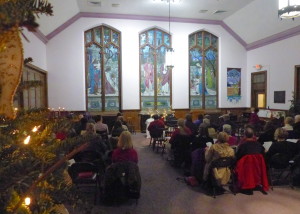 Love is who God is; and
Love is who God is; and 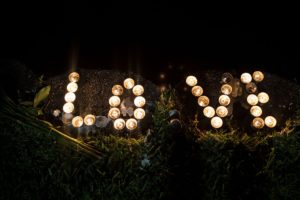 us, and it’s dogged.
us, and it’s dogged.